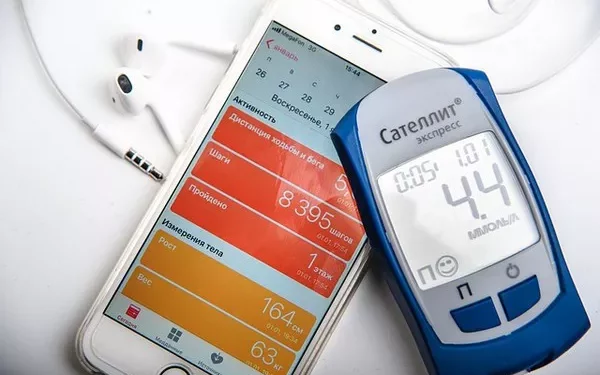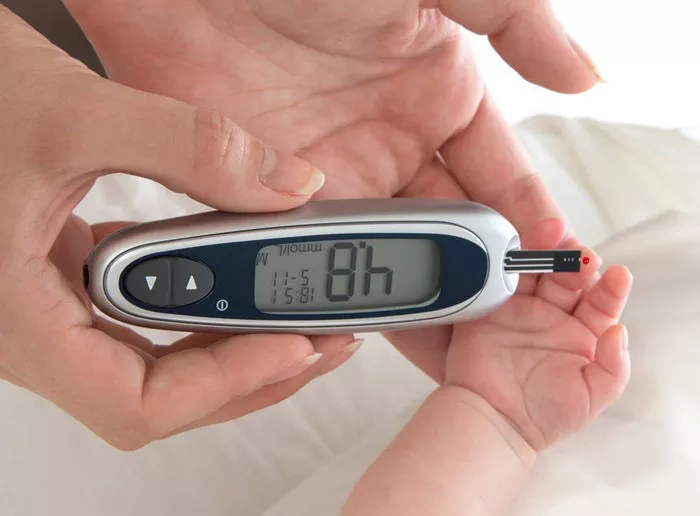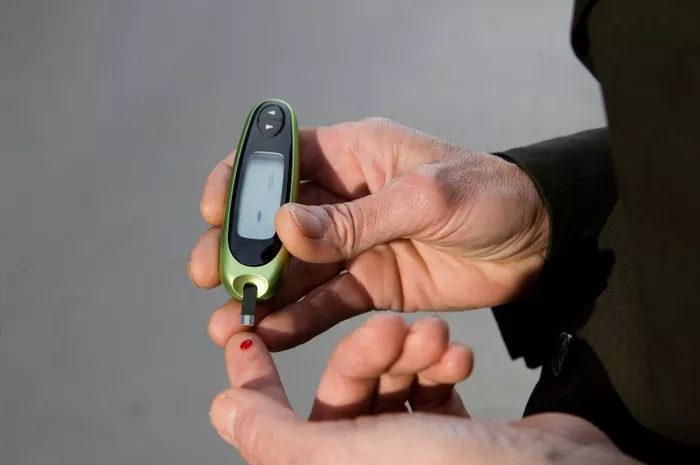Hypoglycemia, commonly known as low blood glucose, is a condition where the glucose level in the blood drops below normal levels. This can be a significant issue for individuals with diabetes, particularly those who are on insulin or other glucose-lowering medications. Identifying hypoglycemia early is crucial to prevent serious complications such as seizures, loss of consciousness, or even death. This article explores six key indicators of hypoglycemia, offering a comprehensive guide to recognizing and managing this condition effectively.
Understanding Hypoglycemia
Hypoglycemia occurs when blood glucose levels fall below 70 mg/dL (3.9 mmol/L). It can be caused by various factors, including excessive insulin or other glucose-lowering medications, inadequate food intake, intense physical activity, or prolonged periods without eating. Symptoms of hypoglycemia can range from mild to severe, and prompt recognition and treatment are essential to avoid adverse outcomes.
1. Physical Symptoms
Physical symptoms of hypoglycemia are among the most noticeable signs of low blood glucose. These symptoms can vary in intensity and may include:
Shakiness and Tremors: One of the earliest signs of hypoglycemia is a feeling of shakiness or trembling. This occurs because the body is reacting to the low glucose levels, and the nervous system is in a state of increased alertness.
Sweating: Excessive sweating, especially when not related to physical exertion or hot weather, can be a sign of hypoglycemia. The body may produce sweat as a response to the drop in blood sugar levels.
Dizziness and Lightheadedness: Low blood glucose can affect brain function, leading to feelings of dizziness, lightheadedness, or unsteadiness. This symptom is particularly common when standing up quickly after sitting or lying down.
Headache: A headache may develop as a result of low blood glucose, often accompanied by a sense of pressure or tightness in the head.
Fatigue and Weakness: A sudden drop in blood sugar can lead to feelings of extreme fatigue and weakness, making it difficult to perform daily activities.
2. Behavioral and Cognitive Changes
Behavioral and cognitive changes can be subtle but are significant indicators of hypoglycemia. These changes include:
Confusion and Disorientation: Low blood glucose levels can impair cognitive function, leading to confusion, disorientation, or difficulty concentrating. Individuals may appear to be unusually dazed or have trouble following conversations.
Irritability and Mood Swings: Hypoglycemia can affect mood and behavior, causing irritability, agitation, or sudden mood swings. Individuals may become unusually short-tempered or emotional.
Difficulty Speaking: A person experiencing hypoglycemia might have slurred or incoherent speech. This occurs because the brain is not receiving enough glucose to function optimally.
Coordination Problems: Impaired coordination and clumsiness can result from low blood sugar levels. This may manifest as difficulty with fine motor skills or unsteady movements.
3. Visual and Sensory Disturbances
Visual and sensory disturbances can also signal hypoglycemia. These disturbances may include:
Blurred Vision: Hypoglycemia can affect the eyes, leading to blurred or double vision. This occurs because the retina and other visual pathways are sensitive to changes in glucose levels.
Visual Hallucinations: In severe cases of hypoglycemia, individuals may experience visual hallucinations, such as seeing objects or people that are not present. This is less common but can be a serious sign of dangerously low blood glucose levels.
Numbness and Tingling: A sensation of numbness or tingling, particularly in the lips, tongue, or fingers, can be a symptom of low blood glucose. This occurs due to the effect of hypoglycemia on nerve function.
4. Autonomic Nervous System Responses
The autonomic nervous system responds to low blood glucose levels with various physiological changes. These responses include:
Increased Heart Rate: Hypoglycemia can trigger a rapid heart rate or palpitations. This is part of the body’s “fight or flight” response to low glucose levels.
Palpitations: Individuals may feel their heart pounding or fluttering in their chest. This symptom can be alarming and is often accompanied by other signs of hypoglycemia.
Trembling or Shivering: The autonomic nervous system may cause trembling or shivering as the body attempts to raise blood glucose levels and restore balance.
5. Behavioral Responses and Eating Patterns
Behavioral responses and changes in eating patterns can indicate hypoglycemia. These responses include:
Cravings for Sugary Foods: Individuals experiencing hypoglycemia may crave sugary or high-carbohydrate foods as the body seeks to quickly raise blood glucose levels.
Eating More Frequently: Some people may increase their food intake or eat more frequently to prevent or alleviate hypoglycemia. This behavior is often an attempt to stabilize blood glucose levels.
Sudden Hunger: A rapid onset of intense hunger can be a sign of low blood glucose. This hunger is usually accompanied by other symptoms of hypoglycemia.
6. Medical Testing and Monitoring
Medical testing and monitoring are essential for accurately identifying hypoglycemia. Key methods include:
Blood Glucose Testing: Regular monitoring of blood glucose levels using a glucometer is crucial for detecting hypoglycemia. Individuals with diabetes should frequently check their blood glucose levels, especially if they experience symptoms.
Continuous Glucose Monitoring (CGM): For individuals with frequent episodes of hypoglycemia, a continuous glucose monitoring system may be used. CGMs provide real-time data on glucose levels and can alert users to hypoglycemic events.
Hemoglobin A1C Testing: While not used to diagnose hypoglycemia directly, A1C testing can help evaluate long-term glucose control and identify patterns that may predispose individuals to low blood glucose levels.
Managing and Preventing Hypoglycemia
Managing and preventing hypoglycemia involves a combination of lifestyle adjustments, careful monitoring, and medical interventions.
Lifestyle Adjustments
Balanced Diet: Consuming a balanced diet with regular meals and snacks can help maintain stable blood glucose levels. Include complex carbohydrates, proteins, and healthy fats to prevent sudden drops in glucose.
Regular Exercise: Engaging in regular physical activity helps regulate blood glucose levels but requires careful management to avoid hypoglycemia. Monitor blood glucose levels before, during, and after exercise.
Avoid Skipping Meals: Skipping meals can lead to hypoglycemia, especially for individuals taking insulin or other glucose-lowering medications. Ensure regular meal times and avoid prolonged fasting.
Monitoring and Treatment
Carry Fast-Acting Carbohydrates: Individuals at risk for hypoglycemia should carry sources of fast-acting carbohydrates, such as glucose tablets, candy, or juice. These can be used to quickly raise blood glucose levels in case of an episode.
Adjust Medications: Consult with a healthcare provider to adjust medication dosages if frequent hypoglycemic episodes occur. Proper dosing and timing of medications are crucial for preventing low blood glucose.
Educate on Hypoglycemia Management: Education on recognizing and treating hypoglycemia is essential for individuals with diabetes and their caregivers. Understanding how to respond to low blood glucose can prevent severe complications.
Medical Interventions
Emergency Care: In cases of severe hypoglycemia, emergency medical care may be required. Glucagon injections or intravenous glucose administration can rapidly elevate blood glucose levels and prevent complications.
Regular Follow-ups: Regular follow-up appointments with healthcare providers can help manage and monitor hypoglycemia effectively. Adjustments to treatment plans and ongoing education can help prevent future episodes.
See also: How to Prevent Nocturnal Hypoglycemia
Conclusion
Identifying hypoglycemia involves recognizing a range of symptoms and indicators, including physical symptoms, behavioral and cognitive changes, visual and sensory disturbances, autonomic nervous system responses, behavioral responses and eating patterns, and medical testing and monitoring. Early detection and prompt treatment are crucial for preventing complications associated with low blood glucose. By understanding these six key indicators and implementing effective management strategies, individuals can better control hypoglycemia and maintain overall health.
Related topics:
What Autoimmune Disease Causes Hypoglycemia



























